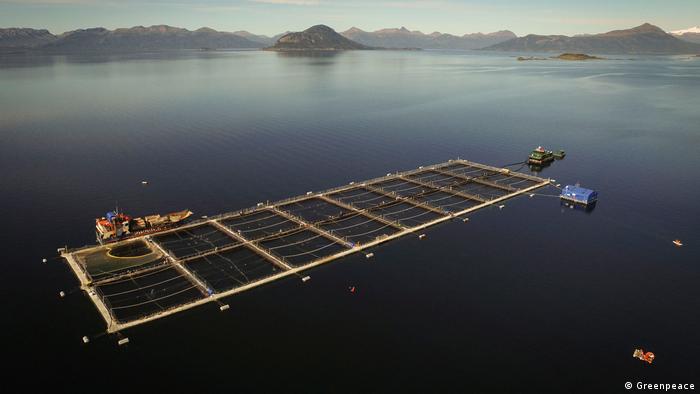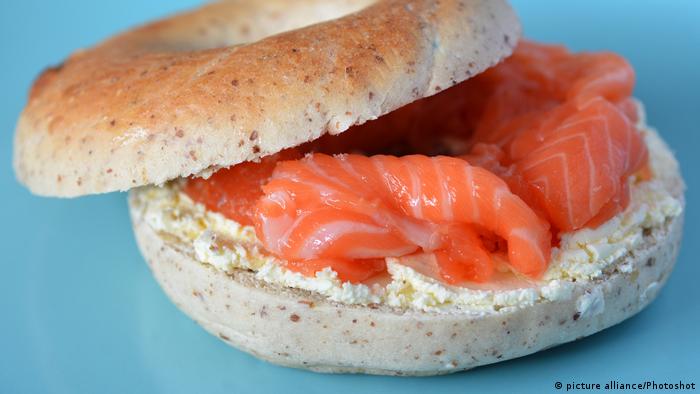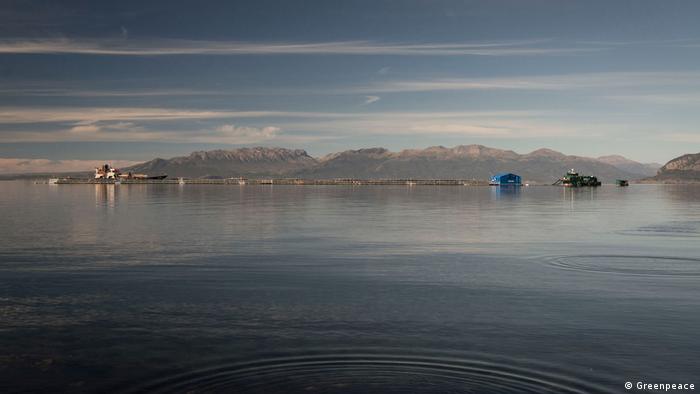The eruption of hundreds of thousands of salmon from the breeding farm of the Norwegian company in the South of Chile has drawn attention to the environmental problems of the billion-dollar salmon industry.

Hundreds of thousands of salmon escaped from a breeding farm of the Norwegian company Marine Harvest on Isla Huar in the vicinity of Puerto Montt in southern Chile. First of all, the speech was of 900,000 salmon, thereafter, the company corrected the number on 690.000 salmon. Marine Harvest, a severe weather was the cause of this is that the fish were at the beginning of July from their cages to break out.
It is one of the largest salmon escapes experienced by Chile. “It is unbelievable that in the case of the Chilean Winter, completely normal climate conditions, break out of nearly a Million salmon from a breeding farm. The only explanation for this is that the company meets the minimum standards,” explains Estefanía Gónzales, marine expert from Greenpeace Chile.
The editorial recommends
Fishing in Chile / Who owns the sea? A report of Carolina do house
Chile’s fishermen are fighting against the privatisation of the sea. Because salmon farms and industrial fishing, the fishermen displace. Profit you bring to the company only a few powerful economy. (20.08.2016)
Alaska’s endangered salmon Paradise
The Bristol Bay in Alaska is a unique Ecosystem. Here there are the largest wild fishing of salmon in the world. However, people in the Bay are Worried about their livelihood. (01.06.2012)
Serious environmental consequences due to the salmon escape
Marine Harvest is the largest breeding group of salmon in the world, and Chile is next to Norway, Scotland and Canada, one of its most important locations. The group has already been accused several times, to operate in Chile salmon farms in disregard of the environmental, legal, social and medical Standards, directives and laws.
The ecological consequences of salmon outbreak are serious. A large part of the salmon are treated in the farms in Chilean farmed with antibiotics. Figures from Greenpeace suggest that a salmon in Chile, with a 700-fold higher dose of antibiotics is treated as a salmon in Norway. This is because the Atlantic farmed salmon is not a native animal without medications in Chilean waters could not survive.
Farmed salmon are the largest and more aggressive than wild salmon and feed on smaller fish. Environmental organisations are calling for, therefore, is to explain the outbreak of the fish officially considered a pest. “The natural instinct of the salmon is the up rivers to swim. There, you can be to the enemy for the native fish that eat them or diseases to infect,” says Gónzales.

Estefanía Gónzales of Greenpeace: “The only explanation is that the company meets the minimum standards.“
“The salmon companies make their own laws”
It is not the first Time that salmon escape from the farms of Marine Harvest. The company has the most fish outbreaks in the Region. Figures from the Chilean Ministry of the environment that have erupted in the last eight years, two millions of salmon from the breeding farms of Marine Harvest. And most of the time only very few will be captured.
The Chilean law, a company has to capture the 30-day period to ten per cent of the outbreaks of fish, before it has to pay a penalty or his license is withdrawn. “Ten percent, is a symbolic value that has nothing to do with the environmental damage, the outbreak of the salmon. This shows that the laws for the benefit of the salmon industry”, criticized Juan Carlos Cárdenas, Veterinarian and Director of the Chilean NGO Ecoceanos, which is campaigning for marine protected niches.
As Marine Harvest had not, after 30 days, half of the required amount of captured extended by the Chilean government, the time limit to 60 days. The salmon catch faster, provides Marine Harvest with the local fishermen a payment of 7000 Chilean Pesos, the equivalent of about ten euros, per salmon – dead or alive.
“This measure is a violation of the law. But in the South of Chile, a kind of “Wild West” of the salmon industry. The salmon companies make their own laws. The state has to check that neither the staff nor the infrastructure and financial resources to the regulations.” Cárdenas says. In addition, entrepreneurs from the salmon industry are often involved in politics, for example, Felipe Sandoval, once the Secretary of state for fisheries and is now President of Salmón Chile, the largest salmon industry Association.

These bagels from New York are, perhaps, even with the cheap Chilean farmed salmon?
Small fishermen are losing their livelihood
But the fish outbreaks are only one aspect of the environmental problems caused by the salmon industry in Chile. There are over 1000 salmon farms in Chile and the country is one of the world’s largest producers of fish meal, the main feed of farmed salmon. “For a ton of salmon, three to five tons of other sea species are needed, which are processed into fish meal. Of sustainability because no one can speak,” says Gónzales of Greenpeace.
Tons of fecal matter, fish meal and chemicals fall daily from the breeding cages down to the bottom of the sea. “The decomposition of these fuels leads to Oxygen depletion and so as a rule, arise the rights of deserts on the sea floor under the farms”, explains Cárdenas.
A further consequence of the Oxygen depletion in the sea caused by climate change, and probably also by the salmon industry, was 2016 flowering, a dramatic algae, the so-called “Marea Roja”, the deaths of thousands of shells, crabs, fish and seals around the island of Chiloé.
The fisherman also made the disposal of hundreds of thousands of tonnes of dead salmon in the vicinity of Chiloé responsible for, including salmon from Marine Harvest. The dead salmon swirled in the water, thousands of small fishermen lost their jobs.

Pacific Idyll: From a greater Entfernng you can’t imagine the adverse effects on the environment.
“The outbreak of the salmon, the fish flour production and water pollution by chemical agents in the salmon industry are a threat to the native species. And which are the basis of life for the local fishermen,” says Alvaro Montaña, a member of the civil Association “defend Amos Chiloé” (“Let us defend Chiloé”).
Environmental organizations call for a Boycott of Chilean salmon
After Norway, Chile is the second largest salmon producer in the world. Salmon are to the copper is the biggest export article of the South American country. 98 percent of the production is exported, the majority to Japan, China, Brazil, the USA and Europe.
“The salmon industry, the Chilean population is of no advantage. The only winners are the transnational companies. The affordable price for the consumers to buy in Europe, the salmon, does not reflect the real costs of production, which are borne by the environment, the fishermen and the workers in Chile,” says Cardenas of Ecoceanos.
The environmental organizations in Chile to call for a Boycott of Chilean salmon. They are calling for stronger regulation of salmon farming in Chile, higher penalties for businesses, the environment and social care and the withdrawal of the license of Marine Harvest.